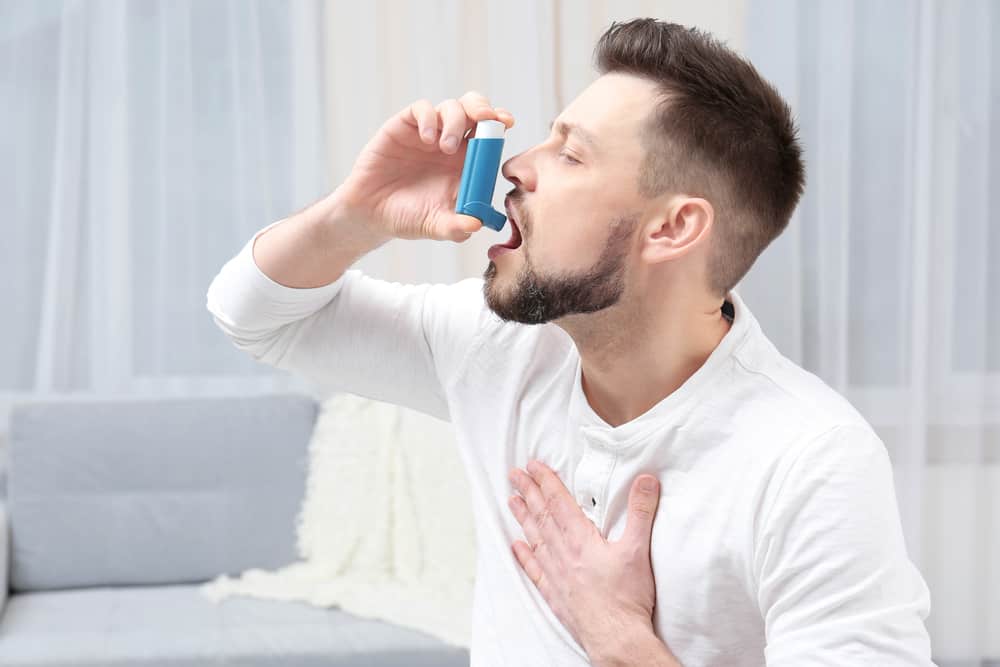Contents:
Medical Video: A Guide to Sexual Lubricants
When aroused, it is normal for women to experience a wet vagina. But, some women can also have vaginal dryness when excited. Dry vagina can cause sex to be an unpleasant experience. It's time for lubricants, aka sex lubricants, to be your savior on the bed.
Sex lubricants serve to wet vaginal tissues and vulva to mimic and enhance the body's natural lubricating effects, and allow women to have friction-free sex. Some lubricants can also stimulate arousal and increase sexual pleasure. Some others double as sperm killers.
But be careful, wrong, your sex lubricant products can destroy the natural salt and pH balance of the vagina and make you at high risk of contracting bacterial vaginosis or vaginal fungus. Here is a short list of some chemicals that should be avoided in your sex lubricant
Hazardous chemicals in sex lubricants that can threaten vaginal health
1. Glycerin
Glycerin, sugar alcohol, functions to increase the viscosity of the lubricant. Glycerin is a moisture guard agent that absorbs water from a substance, so the presence of glycerin in sex lubricant products will cause the liquid texture of the lubricant to become thicker and stickier.
High glycerin levels in lubricants are not a good sign. Too much sugar alcohol can increase candida colonies, which can lead to vaginal yeast infections and urinary tract infections in women who are susceptible to this disease.
2. Petrochemicals - propylene glycol, polyethylene glycol, and petroleum
Most oil-based lubricants or functions are made with basic petrochemicals, which are chemicals derived from petroleum.
Actually, there is no need to really use a type of heater. The sexual arousal that you receive from stimulation can cause swelling and natural warming of the sexual organs, so you no longer need to add chemicals in the vagina to make it heat burning. In addition, sex lubricants that contain petrochemicals can coat your skin so that it disrupts the normal function and absorption of the liquid. Propylene glycol, in particular, can cause vaginal tissue irritation.
This type of lubricant may also contain foreign particles that are suspected of having links to various health conditions, including cancer. Petroleum base material can be found in many common multipurpose lubricants, such as petroleum jelly.
3. Preservatives - parabens, benzyl alcohol, phenoxyethanol, and citric acid
Many people have had bad experiences with sex lubricants that make the skin heat or cause itchy rashes, or feel really sticky during or after use, and that is caused by preservatives.
Parabens and phenoxyethanol are synthetic preservatives intended to kill germs. This preservative is quite dangerous because it can be easily absorbed into the body and mimic estrogen in your body. High concentrations of these preservatives have been linked to skin irritation, poisoning, reproductive damage, immune attenuation, and reduced nervous system function in newborns. Parabens, in particular, may be associated with an increased risk of breast cancer.
4. Benzocaine
Benzocaine is a local anesthetic that can numb the affected area, and is commonly found in lubricants that target anal sex or other experimental sex. Benzocaine in your sex lubricant signals danger. Pain is important to us, because this is the way the body warns you to stop when you feel a threat. If you become numb and continue with this painful sex, you can end up having an injury, experiencing a tear in the vaginal smooth tissue, and other problems.
5. Spermasida nonoxynol-9 (N-9)
Research has shown that N-9 can cause injury. Wounds can appear in the vaginal canal, in the anus, and on the penis. Because open wounds will expose body fluids, such as blood, there is an increased risk of transmission of HIV and other sexually transmitted diseases from sex lubricants that contain spermicide. Spermicide lubricants are also not recommended for use during anal sex.
Spermicides also disrupt the normal bacterial population in the vagina and urethra. There is an increased risk for women to contract urinary tract infections when using sex lubricants containing spermicide.
Then, what sex lubricants are good to use?
When buying sex lubricants, consider choosing organic products, specially formulated not to cause irritation because receptive mucous membranes in the vagina and vulva easily absorb lubricating ingredients into the body.
"The best sex lubricant is an iso-osmotic type, meaning that the product matches the conditions in the vagina - does not add or reduce water from tissue cells or disturb healthy vaginal bacteria," said Wendy Strgar, founder of Good Clean Love, a sexual health company , reported from Prevention.
Over the years, health experts have warned the public to avoid using oil-based lubricants. Oil is destructive to latex rubber, causing the condom to tear quickly. Only silicone and water based lubricants are safe to use with latex condoms. What's more, there is no point in using body lotion, petroleum jelly, or cooking oil as an "alternative" sex lubricant. Oil is not intended to be inserted into a person's vagina or rectum.
READ ALSO:
- Get to know the various types of condoms along with their pluses
- 5 Methods to Prevent the Most Effective Pregnancy
- Can Pregnancy Only Have One Sex?












